13 Best Herbal Tinctures For Headaches
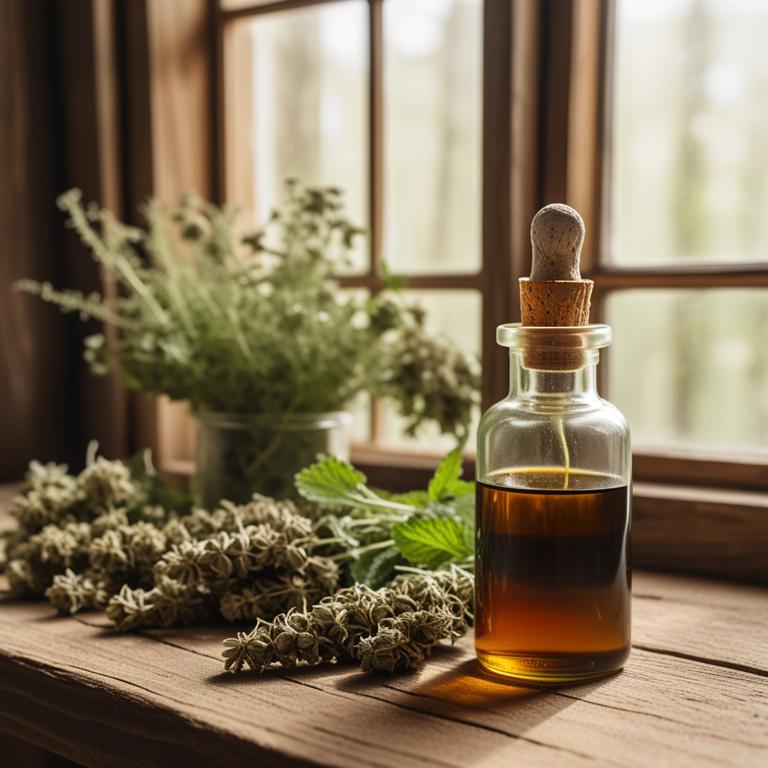
Herbal tinctures for Headaches are concentrated liquid extracts made from various plants and herbs that have been traditionally used to alleviate and treat headaches.
These natural remedies offer numerous benefits, including being non-invasive, free from harsh chemicals, and providing long-lasting relief from headache symptoms.
Examples of herbal tinctures used to treat headaches include Feverfew, which helps to reduce inflammation and ease pain, Willow Bark, which contains salicin, a natural pain reliever similar to aspirin, and Ginger, which has anti-inflammatory properties that can help to soothe and calm the mind and body.
Other examples include Peppermint, which can help to relax tense muscles and ease tension headaches, and Lavender, which promotes relaxation and reduces stress, making it an effective treatment for migraines and tension headaches.
According to "Cephalalgia : an international journal of headache", tinctures for headaches, specifically those containing peppermint oil and ethanol, have been shown to have a significant analgesic effect, reducing sensitivity to headache.
Below there's a list of the 13 best herbal tinctures for headaches.
- 1. Foeniculum vulgare tinctures
- 2. Hypericum perforatum tinctures
- 3. Valeriana officinalis tinctures
- 4. Piper nigrum tinctures
- 5. Cinchona officinalis tinctures
- 6. Silybum marianum tinctures
- 7. Lavandula angustifolia tinctures
- 8. Avena sativa tinctures
- 9. Zingiber officinale tinctures
- 10. Passiflora incarnata tinctures
- 11. Glycyrrhiza glabra tinctures
- 12. Cuminum cyminum tinctures
- 13. Rosmarinus officinalis tinctures
Also you may be interested in...
TODAY'S FREE BOUNDLE
Herb Drying Checklist + Herbal Tea Shopping List + Medicinal Herbs Flashcards
Enter you best email address below to receive this bundle (3 product valued $19.95) for FREE + exclusive access to The Aphotecary Letter.
$19.95 -> $0.00
1. Foeniculum vulgare tinctures
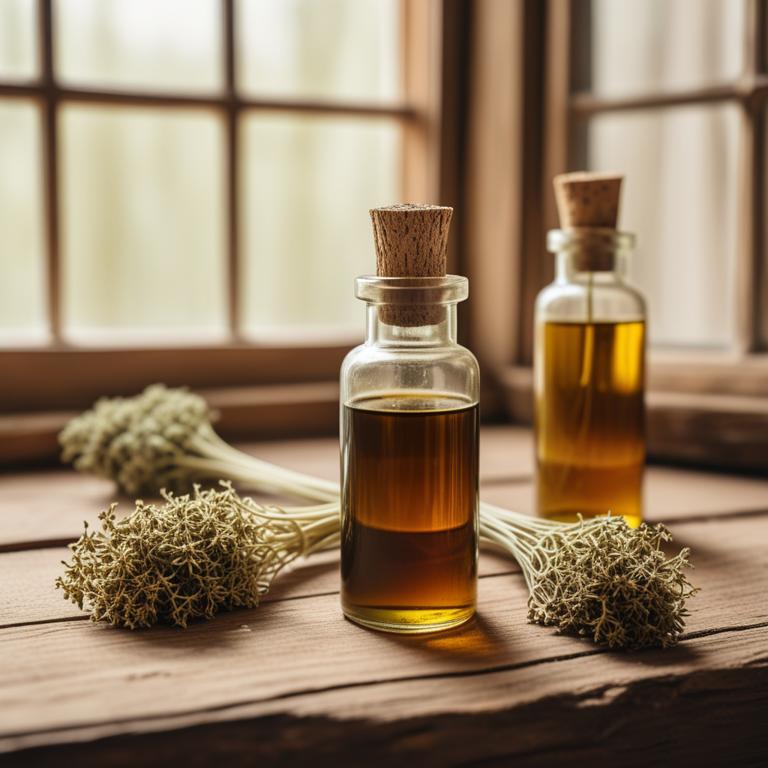
Foeniculum vulgare tinctures have been traditionally used to treat headaches due to their analgesic, anti-inflammatory, and antispasmodic properties.
The bioactive constituents present in Foeniculum vulgare, such as volatile oils like anethole, limonene, and fenchone, help to relax muscles and reduce pain, thereby alleviating headache symptoms.
These herbal tinctures also have a sedative effect, which helps to calm the mind and body, further contributing to the relief from headaches.
The benefits of using Foeniculum vulgare tinctures for headache treatment include natural pain relief, reduced inflammation, and improved overall well-being, making them a popular alternative remedy for this common ailment.
2. Hypericum perforatum tinctures
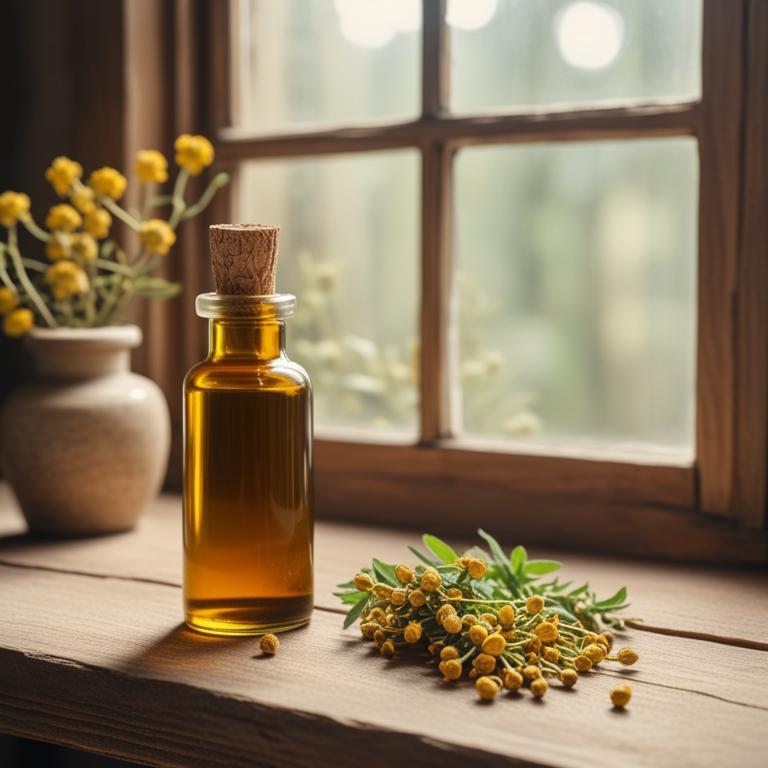
Hypericum perforatum tinctures are a herbal preparation derived from the St. John's Wort plant, known for its anti-inflammatory and analgesic properties that help to alleviate headaches.
The bioactive constituents present in this tincture, such as hyperforin and hypericin, have been shown to have a positive effect on pain relief by modulating the serotonin and GABA receptors in the brain.
By reducing inflammation and modulating neurotransmitter activity, Hypericum perforatum tinctures help to treat headaches by providing relief from pain, tension, and discomfort.
The benefits of using this herbal preparation to treat headaches include a natural and non-addictive approach to pain management, with few side effects and no risk of dependency.
Related Study
According to "Journal of integrative medicine", Hypericum perforatum tinctures for headaches showed potential benefits through the management of gastrointestinal abnormalities, which may help alleviate headache symptoms.
3. Valeriana officinalis tinctures
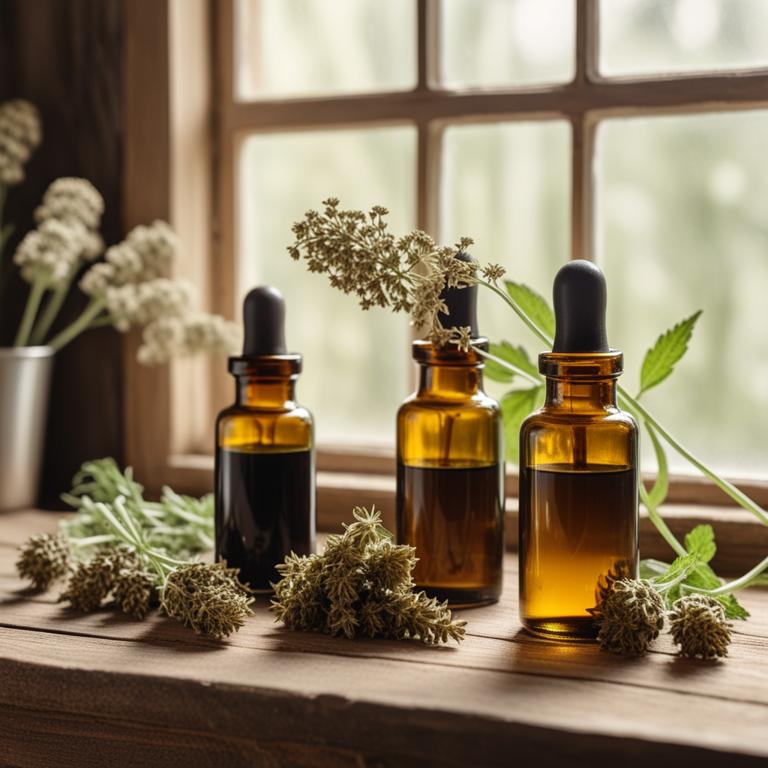
Valeriana officinalis tinctures have been traditionally used to treat headaches due to their relaxing and pain-relieving properties.
The herbal preparation helps to treat this ailment by promoting relaxation, reducing anxiety and stress, and easing muscle tension, which can contribute to headache development.
The bioactive constituents of Valeriana officinalis, including valerenic acid, valeranone, and valepotriates, play a crucial role in its therapeutic effects, acting as a natural sedative and analgesic.
Regular use of Valeriana officinalis tinctures can provide relief from headaches, improve sleep quality, and reduce the frequency and severity of migraine attacks, making it a popular natural remedy for this common health issue.
Related Study
According to "Archives of internal medicine", Valeriana officinalis tinctures for headaches do not have any known interactions that would negate their effectiveness, making them a potential option for treating headaches without concern for significant drug interactions.
4. Piper nigrum tinctures
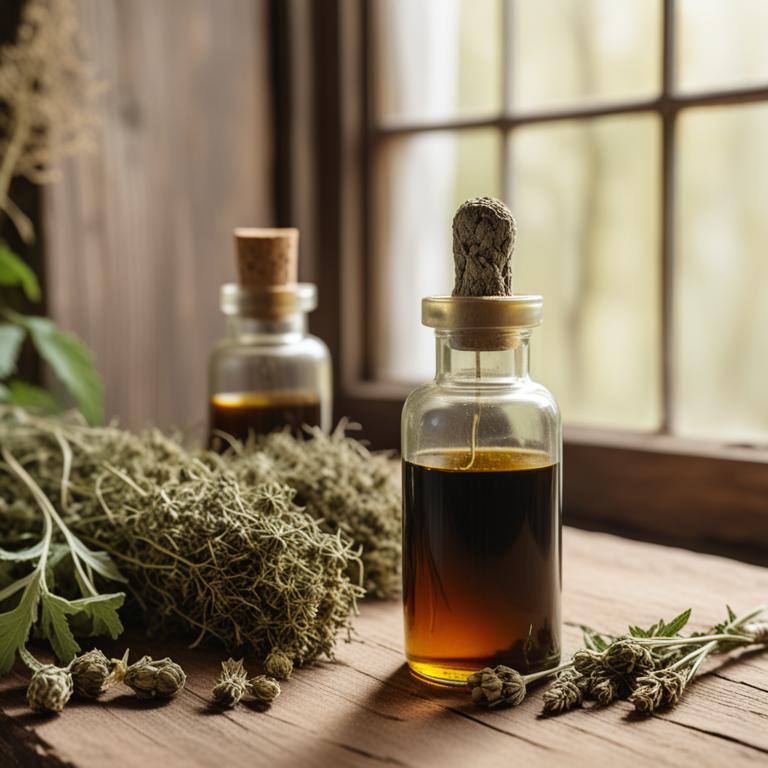
Piper nigrum tinctures, derived from the black pepper plant, have been used to treat headaches due to their analgesic and anti-inflammatory properties.
The bioactive constituents present in these tinctures, including piperine and ferulic acid, help to alleviate headache symptoms by reducing pain and inflammation in the body.
By inhibiting the production of pro-inflammatory enzymes and blocking pain receptors, piper nigrum tinctures provide relief from various types of headaches, including migraines and tension headaches.
Regular use of these tinctures has been reported to offer benefits such as improved mood, reduced stress, and enhanced overall well-being, making it a popular natural remedy for headache sufferers.
5. Cinchona officinalis tinctures

Cinchona officinalis tinctures have been traditionally used to treat headaches due to their analgesic and anti-inflammatory properties, which help to alleviate pain and reduce inflammation.
The bioactive constituents, including quinine, cinchonine, and cinchonidine, contribute to the tinctures' effectiveness in treating headaches by blocking pain pathways and relaxing blood vessels.
By using Cinchona officinalis tinctures, individuals can experience relief from headaches, including migraines and tension headaches, without the risk of addiction or dependence associated with pharmaceutical painkillers.
The benefits of using Cinchona officinalis tinctures for headache treatment include a natural and non-invasive approach to pain management, as well as a reduction in the risk of adverse reactions and interactions with other medications.
6. Silybum marianum tinctures
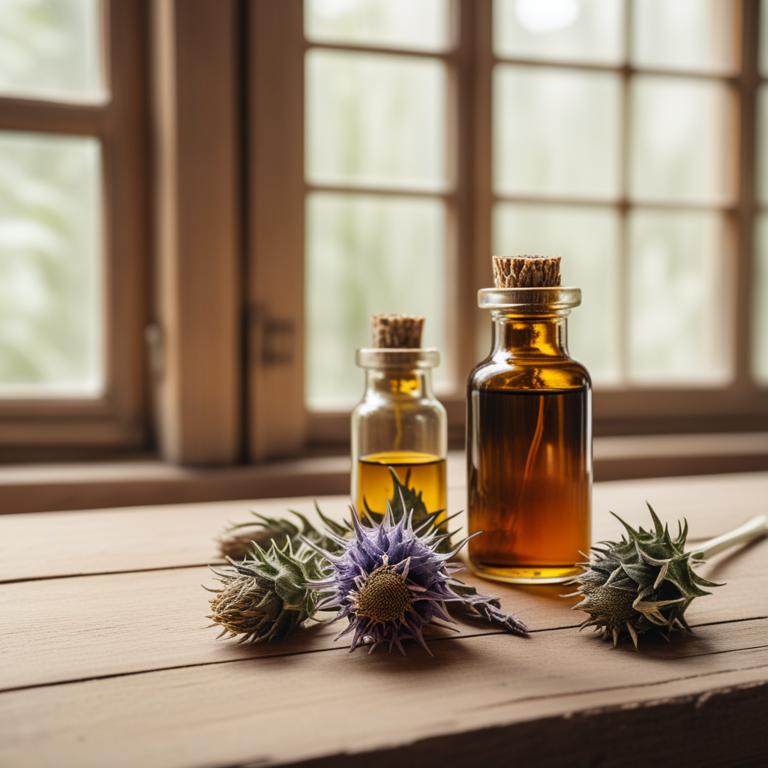
Silybum marianum tinctures, derived from the milk thistle plant, have been traditionally used to treat headaches due to their anti-inflammatory and analgesic properties.
The herbal preparation helps to alleviate headaches by reducing inflammation and pain, which are often associated with headaches.
The bioactive constituents, particularly silymarin and flavonoids, have been shown to possess antioxidant and hepatoprotective properties that can help to soothe and calm the nervous system, leading to a reduction in headache symptoms.
By using Silybum marianum tinctures, individuals may experience a range of benefits, including reduced pain and inflammation, improved mood, and enhanced overall well-being.
7. Lavandula angustifolia tinctures
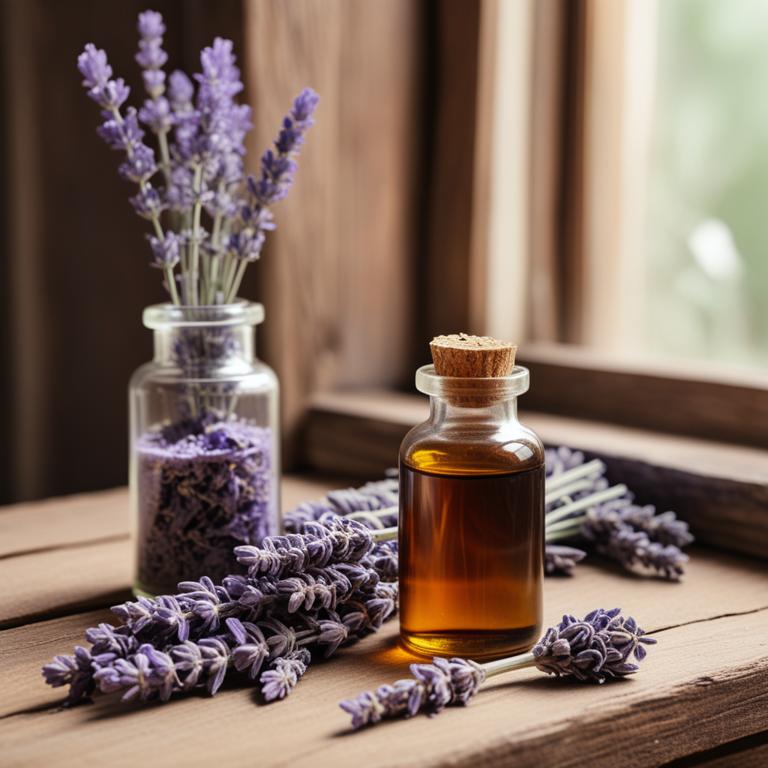
Lavandula angustifolia tinctures have been traditionally used to treat headaches due to their analgesic and anti-inflammatory properties, which help to alleviate pain and reduce inflammation in the body.
The bioactive constituents present in these tinctures, such as linalool and linalyl acetate, work to calm the nervous system and relax muscles, thereby providing relief from tension headaches.
By promoting relaxation and reducing muscle tension, Lavandula angustifolia tinctures help to address the underlying causes of headaches and provide effective relief from symptoms.
Regular use of these tinctures can lead to improved sleep quality, reduced stress levels, and a decrease in the frequency and severity of headaches, making it a beneficial herbal preparation for treating this ailment.
8. Avena sativa tinctures
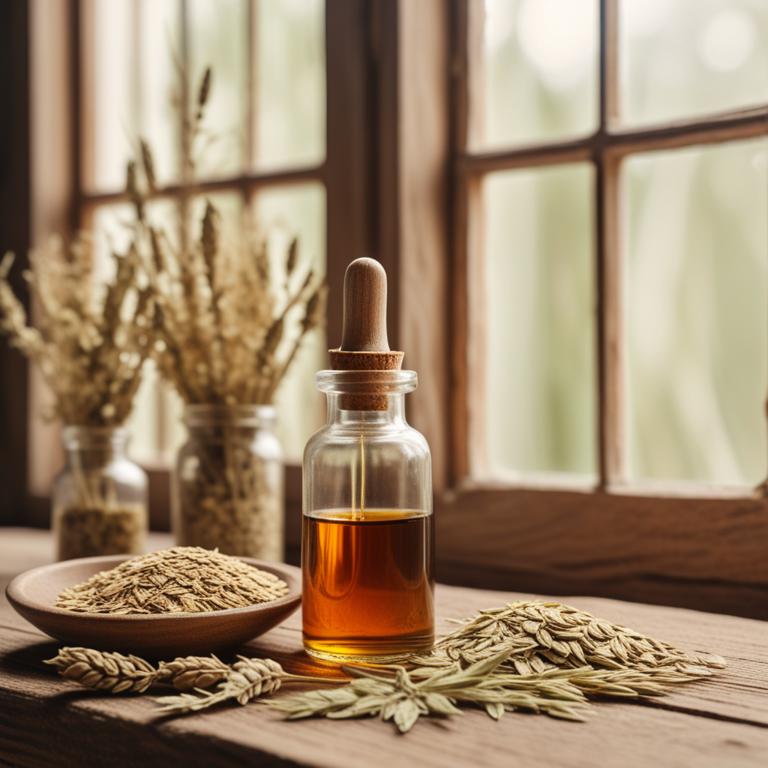
Avena sativa tinctures have been traditionally used to treat headaches due to their analgesic and anti-inflammatory properties, which help to soothe and calm the nervous system.
The bioactive constituents of Avena sativa, including avenacosides and avenanthramides, contribute to its therapeutic effects by reducing inflammation and promoting relaxation, thus helping to alleviate headache symptoms.
By regulating the body's response to stress and promoting a sense of calm, Avena sativa tinctures provide relief from headaches and other related symptoms.
The benefits of using Avena sativa tinctures to treat headaches include reduced frequency and severity of episodes, improved sleep quality, and enhanced overall well-being.
9. Zingiber officinale tinctures

Zingiber officinale tinctures, derived from the ginger root, have been traditionally used to treat headaches due to their analgesic, anti-inflammatory, and antispasmodic properties.
The bioactive constituents of ginger tincture, including gingerols and shogaols, help to reduce pain and inflammation by inhibiting the production of prostaglandins and other pro-inflammatory mediators.
By relieving muscle tension and reducing inflammation, Zingiber officinale tinctures can provide effective relief from headaches, including migraines and tension headaches.
The benefits of using ginger tincture to treat headaches include its natural and non-invasive approach, lack of side effects, and ability to provide rapid relief from symptoms.
Related Study
According to "Journal of integrative medicine", Zingiber officinale tinctures for headaches may help alleviate symptoms through the management of gastrointestinal abnormalities associated with headaches.
10. Passiflora incarnata tinctures
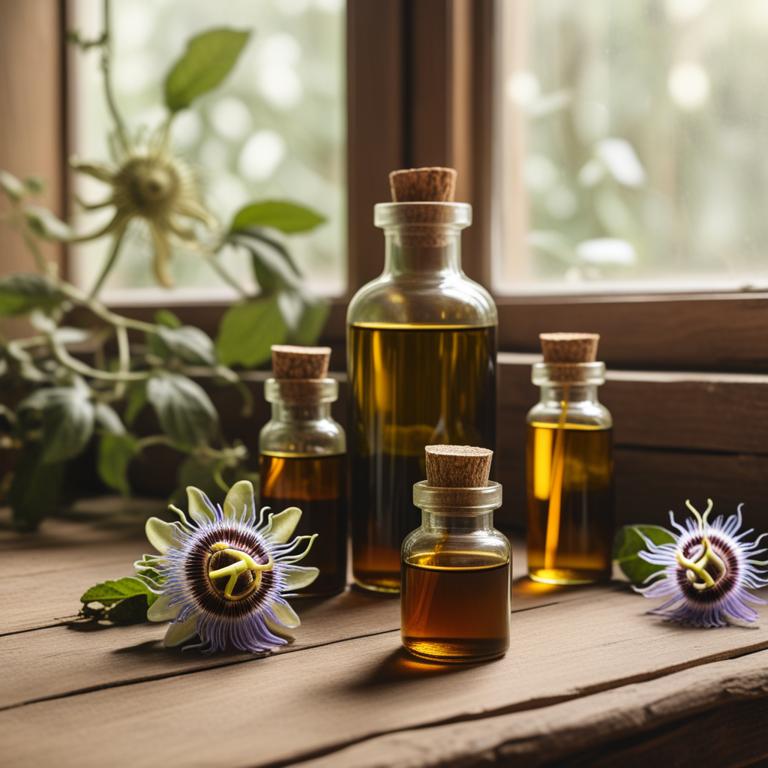
Passiflora incarnata tinctures have been traditionally used to treat headaches, including migraines and tension headaches, due to their analgesic and anti-inflammatory properties.
The herbal preparation helps to treat headaches by reducing pain and inflammation, and promoting relaxation and reducing stress.
The bioactive constituents of Passiflora incarnata, including flavonoids, alkaloids, and glycosides, play a crucial role in its analgesic and anti-inflammatory effects.
Regular use of Passiflora incarnata tinctures can provide relief from frequent headaches and improve overall well-being, making it a popular natural remedy for this common ailment.
11. Glycyrrhiza glabra tinctures

Glycyrrhiza glabra tinctures have been used to treat headaches due to their anti-inflammatory and soothing properties, which help to alleviate pain and reduce swelling in the affected area.
The herbal preparation contains bioactive constituents such as glycyrrhizin, flavonoids, and saponins, which possess analgesic and anti-inflammatory properties, making it effective in treating headaches.
By reducing inflammation and promoting relaxation, Glycyrrhiza glabra tinctures help to ease headache symptoms, providing relief from tension and migraine headaches.
The benefits of using this herbal preparation to treat headaches include reduced pain, improved mood, and increased relaxation, making it a popular natural remedy for managing headache symptoms.
12. Cuminum cyminum tinctures
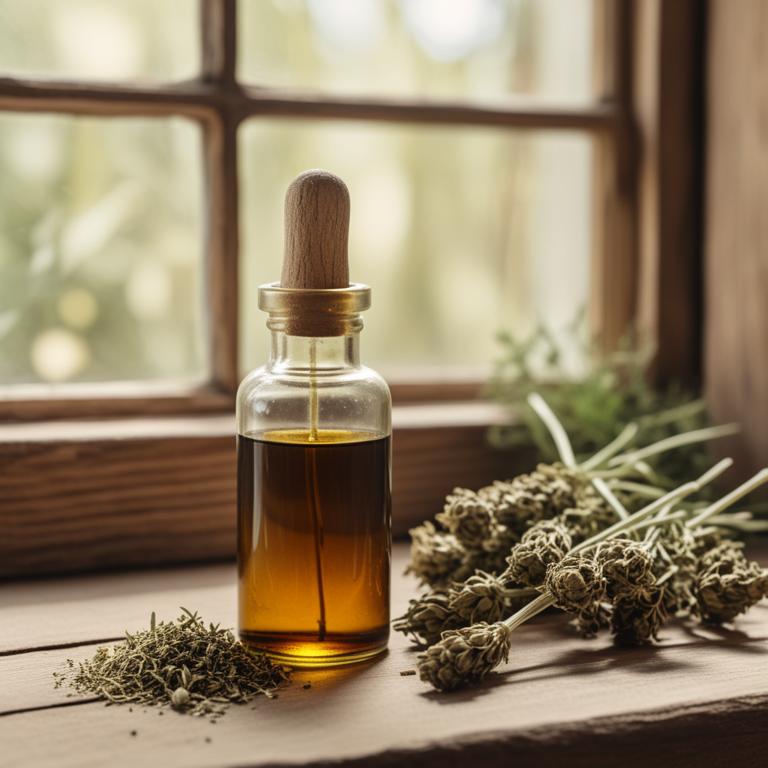
Cuminum cyminum tinctures have been traditionally used to treat headaches due to their analgesic and anti-inflammatory properties, which help to alleviate pain and reduce swelling.
The bioactive constituents present in Cuminum cyminum tinctures, such as cuminaldehyde and limonene, have been found to exhibit antispasmodic and sedative effects, contributing to the relief of headache symptoms.
By reducing muscle tension and promoting relaxation, Cuminum cyminum tinctures help to treat headaches effectively, providing quick and natural relief from pain and discomfort.
Regular use of Cuminum cyminum tinctures may also lead to reduced frequency and severity of headaches, making it a beneficial herbal preparation for long-term management of this ailment.
13. Rosmarinus officinalis tinctures
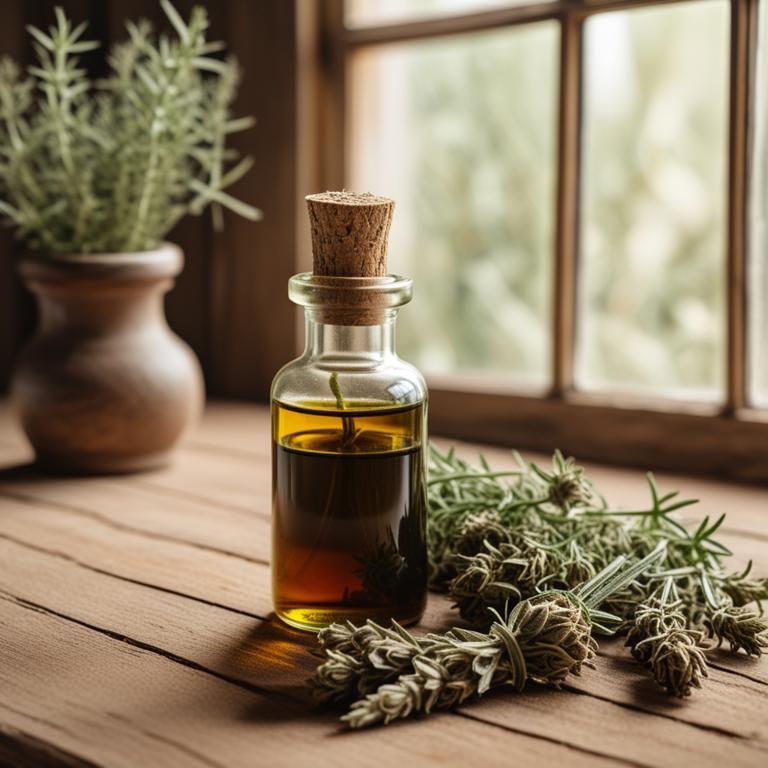
Rosmarinus officinalis tinctures have been traditionally used to treat headaches due to their analgesic, anti-inflammatory, and antispasmodic properties, which help to relieve pain and reduce muscle tension.
The bioactive constituents present in these tinctures, such as rosmarinic acid, carnosic acid, and camphor, contribute to their therapeutic effects by inhibiting the production of pain-causing chemicals and relaxing the muscles.
By reducing inflammation and promoting relaxation, Rosmarinus officinalis tinctures can help alleviate headache symptoms and provide relief from discomfort.
Regular use of these tinctures may also have long-term benefits, including improved sleep quality, reduced stress levels, and enhanced overall well-being.